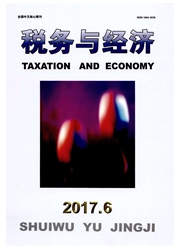

 中文摘要:
中文摘要:
美国量化宽松货币政策的实施虽然在短期内促进了美国经济复苏,但也同样给美国经济带来了一定的负向影响。不断推升的财政赤字,酝酿着债务货币化的风险;美联储的独立性亦在扩张性财政政策实施下受到威胁;而最为重要的是,大规模的政府干预对私人部门的挤出效应凸显,财政悬崖问题严重。危机下美国货币政策有效性受损、金融机构超额存款准备金激增以及后危机时代的“金融加速器”效应,是货币政策出现负向效果的根源。因此,对于中国而言,正视扩张性货币政策的可能弊端,正确处理好经济目标的长短期关系,利用市场机制重塑经济活力,将是未来我国经济复苏与向好发展的有效途径。
 英文摘要:
英文摘要:
Although the implementation of American quantitative easing monetary policy promoted economic re- covery in the short term, it still brought some negative effect on American economy. Continuous growth of finan- cial deficit will bring US at risk of debt monetization. The implementation of expansionary fiscal policy poses threat to Fed's independence. And most importantly, crowding out effect that the massive government interven- tion on private sector is prominent. Fiscal cliff problems are more serious. A lot of problems lead to negative effect of monetary policy. The crisis damages the effectiveness of American monetary policy. The excessive de- posit reserve soars in financial institutions. Financial accelerator effect occurs in post-crisis era. Thus, for Chi- na, in order to develop economy effectively and smoothly, it is necessary to face the possible disadvantages of ex- pansionary monetary policy correctly. It is still important to handle the relationship between long-term goal and short-term goal. It is also crucial to restore economic vitality by making use of market mechanisms.
 同期刊论文项目
同期刊论文项目
 同项目期刊论文
同项目期刊论文
 期刊信息
期刊信息
